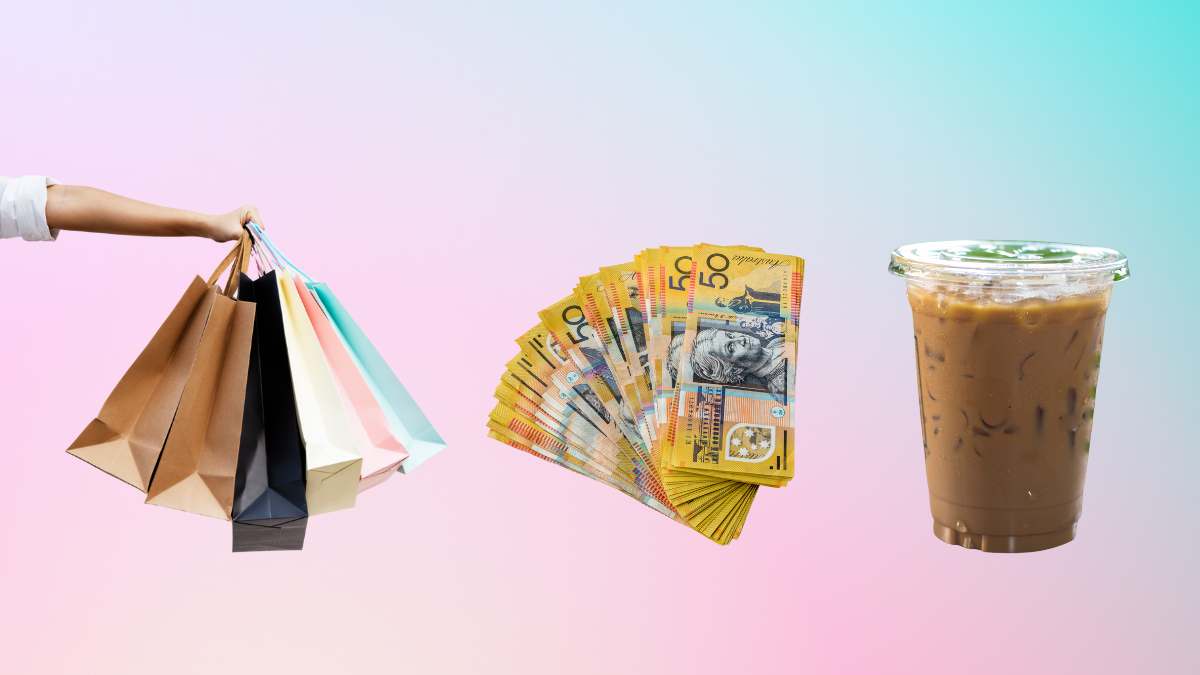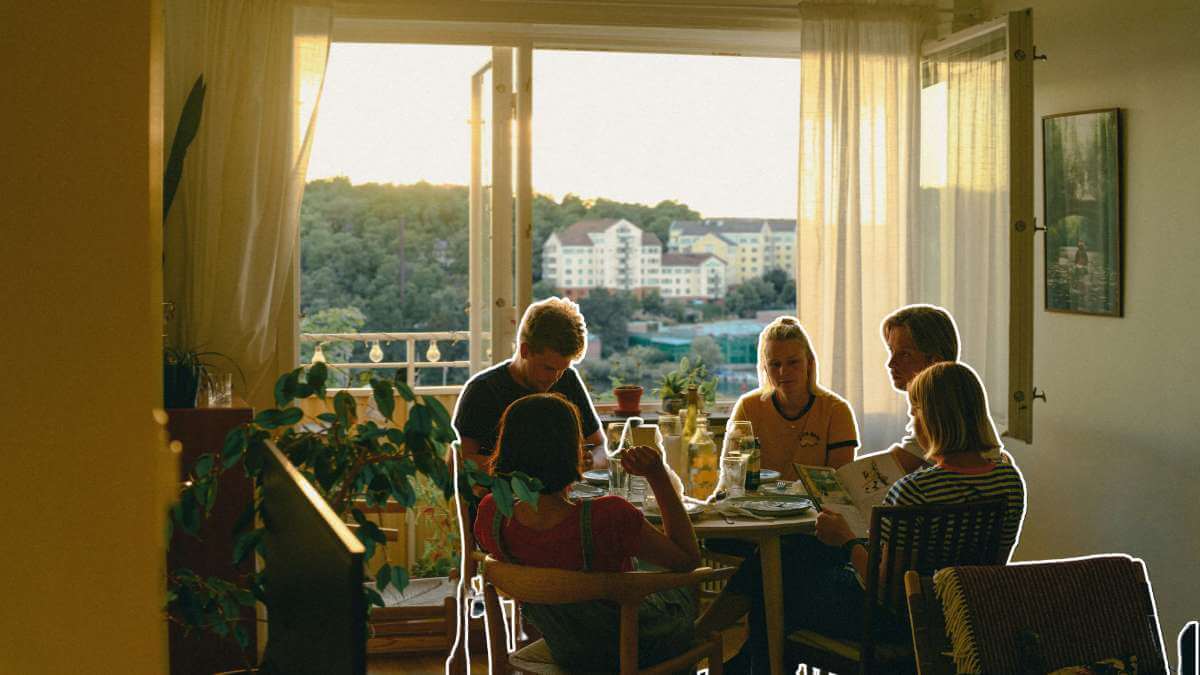With the cost of pretty much everything rising these days, going to the supermarket to do your weekly shop can wind up being a pretty stressful exercise. It feels like simply breathing costs money.
According to the Australian Competition and Consumer Commission (ACCC), young Australians and lower income households are spending up to one-quarter of their net income on groceries, according to the watchdog’s Supermarkets Inquiry, the full details of which are expected to be released in early 2025.
But there are still some ways you can save money on your weekly grocery bill - it just requires a bit more planning and preparation.
1. Meal plan
Planning what you're going to eat and only buying exactly what you need or using what you already have will not only reduce wastage, but save you lots of money too. When you've got a plan, you're a lot less likely to spend money on takeaway meals during the week.
Setting out an entire meal plan for the week can be challenging if you've never done it before. The way I like to do it at the moment is pick out between three and four dishes I want to cook each week that I know will have plenty of leftovers or that I can make in bulk (eg. soups, curries, stir-fries). On the weekends I batch cook up all of my soups/curries and chuck them in the freezer - that way during the working week it's just a matter of pulling out what I want from the freezer and heating it up. It also (usually) stops me from getting take-away because I know I have meals in the freezer.
There are plenty of recipe websites online where you can source your weekly meals from (a personal fave is RecipeTin Eats!), as well as those free supermarket magazines.
2. Buy seasonal produce
Produce is always cheaper when it’s in season, and it tastes infinitely better too. Out of season produce has to be imported, which are costs you end up paying for.
A lot of the recipes in those free supermarket magazines are seasonal, so you know that with the meals you plan, there’s a good chance everything will be available at the supermarket.
3. Use supermarket rewards programs
Woolworths, Coles and IGA all have their own rewards programs which allow you to earn rewards for your spend and/or receive exclusive discounts. It doesn't usually cost anything to join these programs, so if you're going to spend money at those supermarkets anyway, you might as well give yourself the opportunity to at least save a few dollars back. Also, if you're a responsible credit card user, you could earn additional rewards points by doing your tedious grocery shopping with a rewards credit card that has a loyalty program partnered with your supermarket.
4. Avoid recipes that use a special ingredient
If you can, try and avoid recipes that use special, expensive ingredients like saffron, which can cost as much as $15 for a tiny little jar (you could buy 15 $1 coffees from 7-Eleven for that!). If you’re only going to use that ingredient once, it may not be worth the money.
Try leaving the ingredient out, or substituting it with something else you already have at home. You may even surprise yourself with the finished dish!
5. Don’t be a brand snob
We’ve all reached for the better brand of pasta sauce or the more expensive feta cheese, but sometimes it pays to change to an alternative or supermarket-branded product. Often, there’s not that much of a difference in the product taste or quality either. In some cases, supermarket brands use name-brand products and just stick their own label on it, but at a much cheaper price.
Having said that, there'll always be some brands I'm a snob for (looking at you Sirena Tuna and Meredith Goats Cheese!)
Hot tip: Aldi’s cheese selection is massive and it’s usually a lot cheaper than in some of the bigger grocery stores.
You may like to read our article on 60 ways to save money.
6. Check your fridge and pantry before going shopping
Before you go shopping for ingredients, have a quick look in your fridge and pantry to see what you already have in there. Then make a list of what you actually need, so you don’t accidentally waste anything or let things sit in the pantry/fridge going unused.

Source: Unsplash
7. Shop online
When I first moved out of home in my early-mid twenties, I used to do my weekly grocery shop at my local supermarket (which is literally two streets away, you can see it from my balcony). Because I haven't got a car, I would have to carry all my shopping home, which is fine if you haven't bought a lot.
But I would try and do my weekly food shop in one go, and hauling it all home was a struggle. So much so I even shamefully ordered an Uber once because I got halfway home and didn't have the strength to carry my groceries the rest of the way. Of course I could have just done smaller, more regular shops, (or just bought one of those little granny trolleys) but I really hate going to the supermarket.
Enter online grocery shopping. Shopping for your groceries online is not only a lot more convenient, it also stops you from buying stuff 'just because' as you're not being tempted by the lures of the chip aisle. If you regularly do your weekly shop online, the two major supermarkets have their own subscription models which for the sum of between $10-$20 per month gives you unlimited free delivery.
8. Grow your own food
Growing your own produce is a great way to save money, and it always tastes so much better than what you can buy at the supermarket. Growing up, my dad always had tomato plants in the garden and to this day, they are the best tomatoes were the best I’ve ever tasted.
Of course, being able to grow your own food will depend on how much space you have at home. If you’re confined to a shoe-box apartment like me, a herb garden on the balcony is probably as good as it’s going to get. Fresh herbs cost a small fortune at the supermarket and you can often buy entire plants for about the same price as a few sprigs at the shops. Just don’t forget to water them.
9. Cut down on unhealthy food
Good for your waistline and your wallet! Everyone can benefit from cutting down on the amount of unhealthy food they eat, like soft drinks and sugary snacks.
10. Check the unit price
Always check the unit price, which shows the cost per kilogram, litre, or other standard amount. This way, you can compare similar products accurately, even if they come in different package sizes.
Bonus tip: Look beyond eye level! Supermarkets often place cheaper options on higher or lower shelves, banking on the fact that most people won’t pay attention to anything beyond their eye level. Name brands will often pay extra money to be stocked at eye-level because ‘eye-level is buy level’.
11. Look out for price reductions
If you leave your shop until the end of the day, meats (like hot deli chickens) and other products that are about to reach their best before or use by date are often marked down. So if you see bulk slow-cooker cuts of meat or chicken that has a reduced sticker on it, grab a few packs and and chuck them in the freezer to use at a later date. Fruit that is marked down because it's a little bit bruised is perfect for baking (like overripe bananas for banana bread).
12. Cook in bulk
When it comes to making your own meals from scratch, there’s no such thing as making ‘too much’. Always try and cook extra so that you’ve got enough for leftovers at work the next day, or to chuck in the freezer for those nights you just don’t feel like cooking.
For example, if you make a big batch of mince sauce, you can use it for spaghetti, tacos or shepherds pie, covering multiple meals in one hit.
13. Leave the overspenders at home
Shopping with your kids or your partner can add a lot to your grocery bill and the supermarkets know this. It’s why they put chocolates and lollies at the checkouts, or place items geared towards kids down at their eye level.
Bringing your partner along can also add to your grocery bill if they go for impulse buys or things that aren’t on your shopping list.
If you can, leave them at home so you won’t load up your trolley with a whole lot of things you don’t need.
14. Keep an eye out for discounted products
Supermarkets often have bins, tables or labels indicating the products that are being cleared out, so keep an eye out for these.
There’s nothing wrong with these products: they’re usually just nearing their use-by date, are discontinued or the promotion is ending, and if they don’t get sold they get binned.
15. Bulk buy items when they’re on sale
At most of the big supermarkets, the specials start on Wednesday and run the full week until the following Tuesday. Most of the time you can find household items on sale that you need on a regular basis, like laundry detergent, toilet paper, household cleaners, shampoo and conditioner, and more. If one of your regular staples comes up for half price, bulk-buy it.
16. There’s an app for that
There’s an app for everything these days, including apps to help you save money on your groceries.
Read our article about some of the best apps to save you money on your grocery shop.
17. Don’t waste food
We've all let bags of spinach go to rot before but you're literally throwing money away by wasting food. Throwing away a bag of rotten spinach or shrivelled-up mushrooms can feel like putting your money in a blender.
To avoid that, keep a big basket in the fridge and chuck everything that you haven't used yet or that's close to its use-by date into it. Make it your mission to use up everything that's in there before you go grocery shopping.
18. Go hard on the veggies, easy on the meat
Die-hard carnivores will hate me for saying this. But we all know that meat can be pretty exxy, which is why you should go vegetarian at least once a week.
Regardless of your ethical or sustainable beliefs, it's proven that eating more vegetarian meals is better for your insides - and your wallet. The more veggies you add to every meal, the healthier and cheaper it will be for you. You can still get your protein hit through other things like beans, tofu, lentils, nut butters, eggs and nuts.
Instead of making a traditional beef bolognese for example, you could make a lentil or mushroom bolognese instead as a cheaper alternative.

Source: Unsplash
19. Buy in bulk
There’s no doubt that buying items in bulk will save you money, but it doesn’t mean you should stock up on 100 rolls of toilet paper unless you know you’ve got enough space at home to store it. Plus, bulk-buying nowadays is just bad manners.
Living with overflowing cupboards isn’t fun, and neither is an overflowing freezer or pantry. Make sure you know the capacity of your fridge and freezer before stocking up on items.
20. Don’t shop when you’re hungry
We all know you shouldn’t shop when you’re hungry because you’re likely to buy more food, and food that appeals to your appetite at the time (five packets of Tim Tams and a family-sized bag of Doritos) rather than what you actually need for that week.
There are countless studies showing how shopping when you’re hungry can hinder your decision-making process, meaning you’re likely to opt for high-calorie options. You’ll leave the supermarket with way more than you intended to buy, and with more snacks than ingredients.
21. Bulk out your meals with vegetables and legumes
Bulking out your meals with extra veggies or legumes like lentils is a nutritious and budget-friendly way to stretch out your weekly shopping budget even further. Add grated carrots and zucchini to your bolognese, or bulk it out with lentils - once it’s all cooked up it looks pretty similar to beef mince and you can’t really taste the difference.
22. Use AI to help you save
Artificial intelligence (AI) chatbots are a relatively new thing but they can be a powerful tool to help you save money. You can use AI chatbots like ChatGPT to save money on groceries, for example.
If you need to use up a bunch of food before it goes to waste, ask AI to come up with recipes using up what you have left in the fridge. Depending on the kinds of ingredients you have left, you could get some rather…creative ideas.
You could also use AI to create a customised meal plan specific to your budget. For instance:
"I want to create a nutritious, balanced weekly meal plan for $100 AUD a week for one person. This should include breakfast, lunch, dinner and snacks. Please include a grocery list at the end with prices from the Coles/Woolworths websites, and quantities of ingredients needed.”
You can also ask it to create a shopping list with price comparisons from the major supermarkets.
23. Buy refills
If you’re buying certain items like cleaning products, body wash, hand soap, or shampoo and conditioner - opt for the refills instead of buying a brand new bottle each time. Many brands offer refills of their products in an effort to be more sustainable, and they’re often a bit cheaper too.
24. Get creative with using leftovers
Jamie Oliver is the king of championing against food waste by getting creative with leftovers. One of his books Save With Jamie (not sponsored, just good) is all about stretching your family food budget further by getting multiple meals out of a cut of meat. For example, the meat from a roast beef brisket can be turned into beef rendang, pulled brisket chilli con carne, pulled brisket tacos, etc. Or you could shred the leftover chicken from your Sunday roast and turn it into a Vietnamese chicken salad, and use the carcass to make a chicken stock.
There are plenty of resources online that show you how to use leftovers more creatively.
25. Familiarise yourself with prices
Being familiar with how much the things you regularly buy cost will allow you to work out which supermarket offers the best price for that item, and whether or not you’re getting a decent deal on a sales item. Our Grocery Price Index captures monthly changes to grocery prices which helps to visualise how prices have changed over time.
26. Add one-pot recipes to your repertoire
I love a good one-pot recipe especially after I received a Le Creuset for my birthday a few years ago. Most weekends, particularly in winter, you’ll find me making a bulk soup or curry - my go-to is a huge pot of minestrone using whatever veggies I have on hand, chicken or vegetable stock, crushed tomatoes and some lentils or soup mix to bulk it out a bit more.
27. Store your food correctly
Storing your fresh produce properly at the correct temperature will mean they last a lot longer, so you aren’t chucking out rotten bags of spinach every couple of days and wasting money. It’s also important to learn which fruits and vegetables can happy co-exist in your crisper drawer. Don't store ethylene-sensitive fruits or vegetables with fruits or vegetables that produce a lot of ethylene gasses - the best example of this is keeping onions away from apples and potatoes because they will hasten the ripening process.
28. Go to Aldi for the staples
Aldi is a goldmine for budget-conscious shoppers. They offer a wide variety of private-label products that are often comparable in quality to name brands, but at a significantly lower price. Get your basic pantry staples like pasta, rice, beans and canned goods at Aldi to free up your budget for the more speciality items that you can’t get there.
29. Get frozen fruit & veggies
Frozen fruits and vegetables are a lifesaver for busy people and budgeters alike. They're flash-frozen at peak freshness, locking in nutrients and often costing less than their fresh counterparts. Frozen produce is great for smoothies, stir-fries, soups, and stews. Plus, you won't have to worry about spoilage – a major advantage that helps cut down on food waste.
30. Go to international grocers
Don't limit yourself to the mainstream supermarkets and explore international grocery stores in your area. They often have staples like rice, lentils, and spices at much lower prices than traditional supermarkets. You can often buy cheap big bags of spices, and if you keep the old spice jars you collect from Coles or Woolworths, just refill them.



 William Jolly
William Jolly
 Emma Duffy
Emma Duffy












